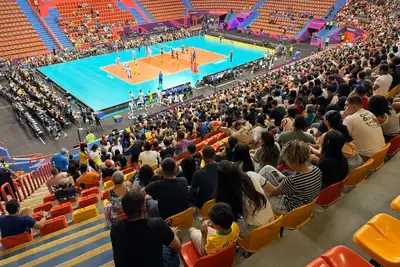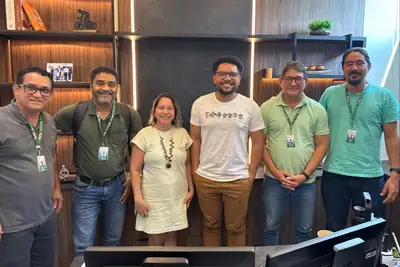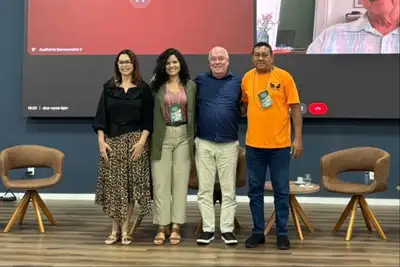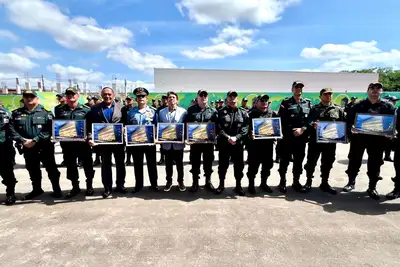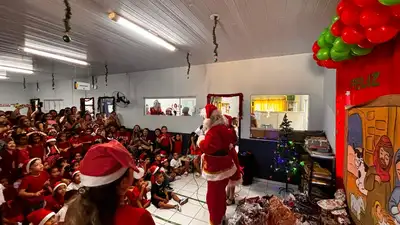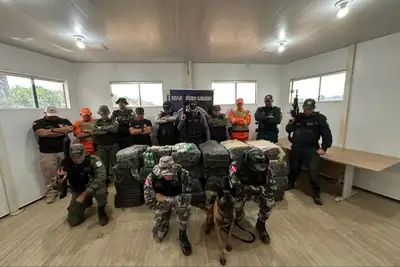Professionals reinforce the role of welcoming and guiding families and caregivers at CIIR, Natea, and Cetea
At the State Rehabilitation Complex, the work goes beyond clinical follow-up and ensures emotional support for mothers, fathers, and caregivers
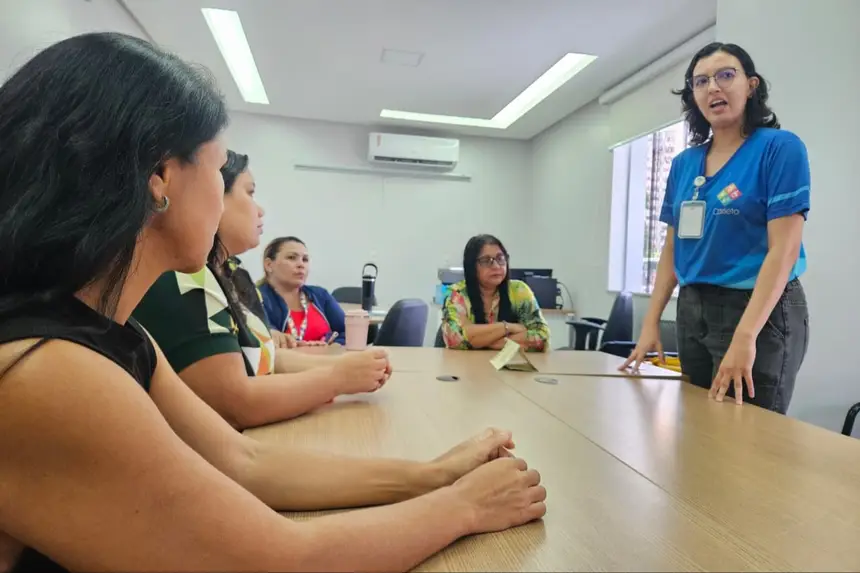
For psychologist Joana Porto, a specialist in Applied Behavior Analysis (ABA) and working at Cetea, the work goes beyond interventions with children and adolescents
On this Wednesday (27), which celebrates Psychologist Day, the Government of Pará's Rehabilitation Complex, which includes the Integrated Center for Inclusion and Rehabilitation (CIIR), the Autism Spectrum Disorder Care Center (Natea), and the Specialized Center for Autism Spectrum Disorder (Cetea) in Belém, highlights the importance of this professional in serving people with disabilities and their families.
More than just accompanying users in therapies, psychologists play a role of welcoming and guiding families, who take on the routine of full-time caregivers.
This support has made a difference for Adrielly de Jesus, 19 years old, mother of Anthony Levy, 3 years old, who has been receiving treatment at CIIR for almost two years. She reports that psychological assistance was essential to face the changes brought by her son's diagnosis.
“It was here that I had psychological support for the first time. I was able to vent, learned to control my emotions, and noticed changes in my behavior and even in my son's development,” she reported. For her, the support received brought relief and security: “Today I know I have someone to count on, I don’t feel alone,” reflected the young woman, who lives in Tailândia, in southeastern Pará.
Psychologist Claudineia Lobo, who works in the early stimulation group at CIIR and accompanies Adrielly and other caregivers, emphasizes that psychological support is essential for families to feel empowered. “Our work is to listen, guide, and help caregivers understand the therapeutic process. When we welcome mothers, they gain confidence, take better care of their children and themselves,” she explained.
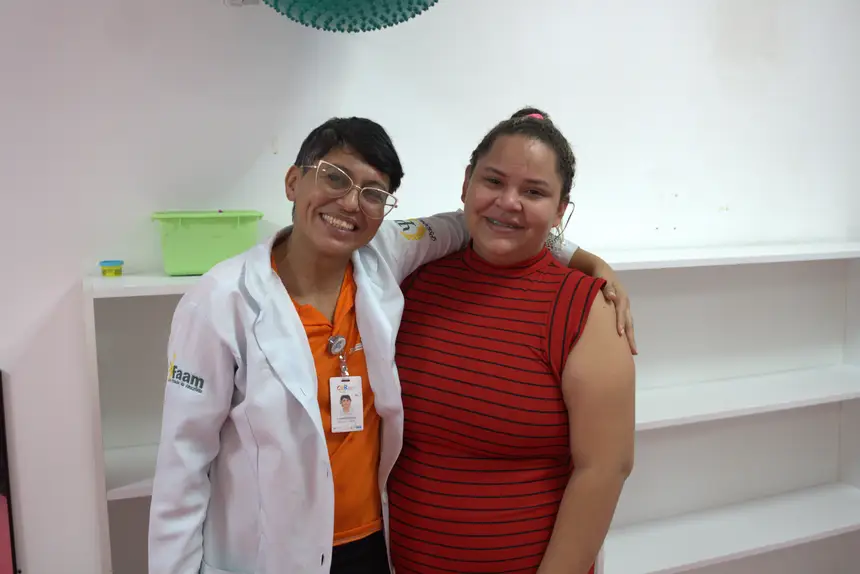
At Cetea, Wandernice Carneiro, 51 years old, mother of Enzo, 18 years old, also shares her experience and confirms the importance of this professional. According to her, the support offered by the service makes the routine lighter. “Being an atypical mother demands a heavy routine, but when we have this support, we realize that we are not alone. This differentiated perspective from psychologists gives us strength and helps us move forward,” she highlighted.
For psychologist Joana Porto, a specialist in Applied Behavior Analysis (ABA) and working at Cetea, the work goes beyond interventions with children and adolescents.
“The psychologist needs to establish a therapeutic bond not only with the users but also with the caregivers. We can only take good care of the children when we also take care of the mothers and fathers,” emphasized the professional, who accompanies Wandernice and other mothers during the Parental Training, an activity aimed at strengthening bonds and developing strategies for daily life.
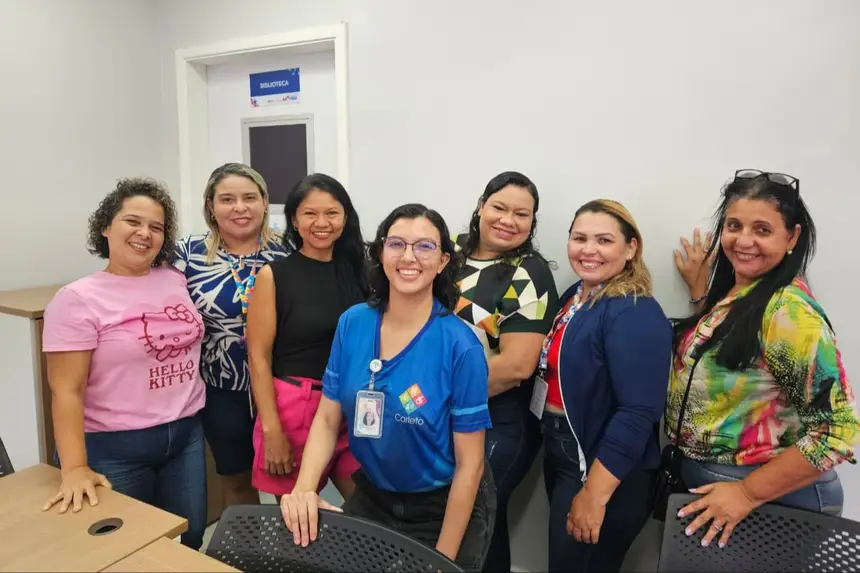
Expanded Care
The differential of the Complex lies precisely in this care for caregivers. “Programs such as the Caregiver Attention Program (Proac), Cuida Natea, and Cuida Cetea offer moments of experience exchange, dynamics focused on mental health, leisure, and parental training, always aiming to reduce stress, strengthen family bonds, and enable caregivers to also take care of themselves,” explains the assistant director of CIIR, Maria do Carmo Freitas.
CIIR is a reference in Pará for medium and high complexity assistance to People with Disabilities (PcD) visual, physical, auditory, and intellectual. Access to services is made through referrals from health units, via the Municipal Regulation Center, which directs requests to State Regulation. The user's profile is analyzed by the State Regulation System (SER).
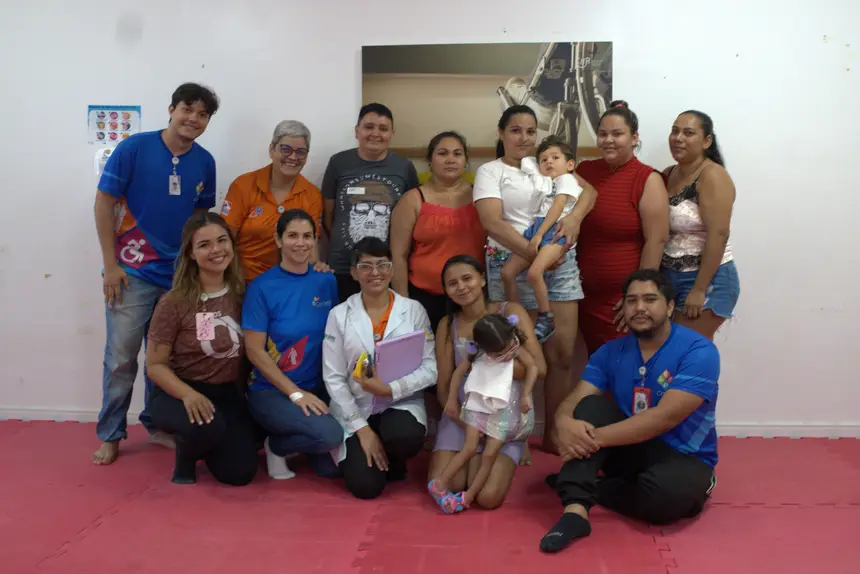
Service: The Integrated Center for Inclusion and Rehabilitation is an agency of the Government of Pará managed by the National Institute for Social and Human Development (INDSH), in partnership with the State Department of Public Health (Sespa). The unit is located at Rodovia Arthur Bernardes, No. 1,000, in Belém. More information: (91) 4042-2157 /58 /59.
Text: Tarcísio Barbosa (Ascom CIIR)


